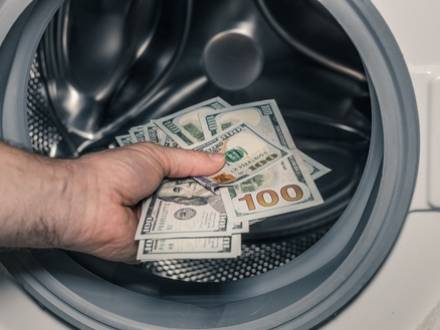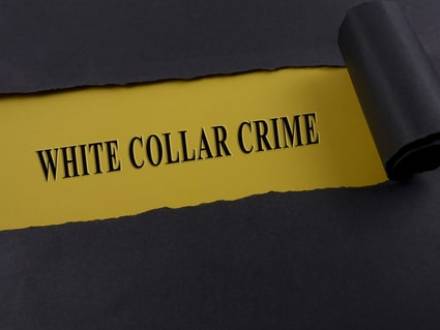Recent Blog Posts
What Counts as Federal Healthcare Fraud?
 Federal healthcare fraud cases can lead to large fines, loss of your professional license, and even prison time. Prosecutors pay extra attention to cases involving Medicare or Medicaid since those programs are funded by taxpayers. If you have been accused of healthcare fraud, you should seek legal counsel immediately. Our Dallas, TX federal healthcare fraud defense lawyers will explain your rights and help you build a defense.
Federal healthcare fraud cases can lead to large fines, loss of your professional license, and even prison time. Prosecutors pay extra attention to cases involving Medicare or Medicaid since those programs are funded by taxpayers. If you have been accused of healthcare fraud, you should seek legal counsel immediately. Our Dallas, TX federal healthcare fraud defense lawyers will explain your rights and help you build a defense.
Defining Federal Healthcare Fraud
Under 18 U.S.C. § 1347, it is illegal to knowingly create or carry out a scheme to cheat a healthcare program. These programs include both private insurance and government-funded plans like Medicare and Medicaid. The word to remember here is "knowingly." Prosecutors must prove you acted intentionally. Honest mistakes or clerical errors are not criminal fraud. For example, a coding error or a billing misunderstanding does not make someone guilty of fraud.
Challenging the Government’s Case in Asset Forfeiture Proceedings
 When your assets are at risk of forfeiture, it may feel as though the government has already won. The process can move quickly, and it often seems like the odds are stacked against you. However, federal law provides specific defenses that can be raised in court. With the help of experienced Dallas, TX asset forfeiture lawyers, you may be able to protect your property and challenge the government’s case.
When your assets are at risk of forfeiture, it may feel as though the government has already won. The process can move quickly, and it often seems like the odds are stacked against you. However, federal law provides specific defenses that can be raised in court. With the help of experienced Dallas, TX asset forfeiture lawyers, you may be able to protect your property and challenge the government’s case.
How Does Federal Law Define Asset Forfeiture?
Asset forfeiture is the process the government uses to seize property connected to alleged criminal activity. Under 18 U.S.C. § 981, the federal government can pursue civil forfeiture against property tied to money laundering, wire fraud, and other financial crimes. Property can be seized even if you have not been charged. Criminal forfeiture, on the other hand, is part of the sentencing process following a conviction and is authorized by 21 U.S.C. § 853.
When Is Credit Card Fraud a Federal Crime?
 Credit card fraud may become a federal case when it crosses state lines, involves a federally insured bank, or uses interstate wires or mail. Cases often start with alerts from banks or major merchants, and agents may step in when losses seem large or victims span multiple states. If agents contact you or serve a subpoena, pause before answering and speak with a lawyer. Quick, informed guidance from a Dallas, TX credit card fraud defense attorney can help protect your rights.
Credit card fraud may become a federal case when it crosses state lines, involves a federally insured bank, or uses interstate wires or mail. Cases often start with alerts from banks or major merchants, and agents may step in when losses seem large or victims span multiple states. If agents contact you or serve a subpoena, pause before answering and speak with a lawyer. Quick, informed guidance from a Dallas, TX credit card fraud defense attorney can help protect your rights.
What Does Federal Law Say About Credit Card Fraud?
Federal prosecutors can charge people with "access device fraud" under 18 U.S.C. § 1029. This law covers using, making, or selling unauthorized card numbers, counterfeit cards, or skimming gear. It can also apply to possession of fifteen or more account numbers or tools used to make fake cards. The penalties can be steep, and they rise with the amount of money involved and the number of victims.
How the Computer Fraud and Abuse Act (CFAA) Impacts Internet Crime Charges
 Facing an accusation of internet crimes can be overwhelming, especially when federal law is involved. The Computer Fraud and Abuse Act (CFAA) is one of the most powerful tools prosecutors use in these cases. Because violations of this law are federal crimes, they often carry steep penalties, including prison time and heavy fines. If you are under investigation, working with a knowledgeable Dallas, TX internet crime defense attorney is the first step in protecting your rights and developing a strategic defense.
Facing an accusation of internet crimes can be overwhelming, especially when federal law is involved. The Computer Fraud and Abuse Act (CFAA) is one of the most powerful tools prosecutors use in these cases. Because violations of this law are federal crimes, they often carry steep penalties, including prison time and heavy fines. If you are under investigation, working with a knowledgeable Dallas, TX internet crime defense attorney is the first step in protecting your rights and developing a strategic defense.
What Is the Computer Fraud and Abuse Act?
The CFAA, codified under 18 U.S.C. § 1030, is a federal law originally passed in 1986 to protect government and financial computer systems. Over time, Congress expanded it to cover nearly any computer connected to the internet. In the broad sense, it prohibits unauthorized access to computers, networks, and data. Federal prosecutors often use the CFAA when someone is accused of hacking, taking information, or improperly using a company’s computer system.
What Are the Possible Consequences for Money Laundering in Texas?
 Money laundering is a serious offense in Texas and at the federal level. Law enforcement agencies aggressively investigate and prosecute these crimes due to their connection with drug trafficking, fraud, and other illegal enterprises. The penalties can be severe, and even a conviction on state charges can lead to a long prison sentence and hefty fines. If you are under investigation or facing charges, speak to a Dallas, TX money laundering defense lawyer as soon as possible.
Money laundering is a serious offense in Texas and at the federal level. Law enforcement agencies aggressively investigate and prosecute these crimes due to their connection with drug trafficking, fraud, and other illegal enterprises. The penalties can be severe, and even a conviction on state charges can lead to a long prison sentence and hefty fines. If you are under investigation or facing charges, speak to a Dallas, TX money laundering defense lawyer as soon as possible.
What Is Money Laundering Under Texas Law?
According to Texas Penal Code § 34.02, a person commits money laundering when they knowingly engage in financial transactions involving proceeds from criminal activity. This could include actions like transferring, spending, investing, or concealing money that was not legally acquired.
Can You Challenge Charges for PPP Loan Fraud in Texas?
 The Paycheck Protection Program (PPP) was created to help businesses keep workers employed during the COVID-19 pandemic. As billions of dollars were distributed, federal and state authorities started investigating people suspected of PPP loan fraud. If you are facing accusations, a Dallas, TX PPP loan fraud defense lawyer can help you understand your rights and legal options.
The Paycheck Protection Program (PPP) was created to help businesses keep workers employed during the COVID-19 pandemic. As billions of dollars were distributed, federal and state authorities started investigating people suspected of PPP loan fraud. If you are facing accusations, a Dallas, TX PPP loan fraud defense lawyer can help you understand your rights and legal options.
What Does It Mean To Be Charged With PPP Loan Fraud?
PPP loan fraud happens when someone lies or uses false information to get money from the program. This might involve lying about the number of employees, making up fake businesses, using the money for personal expenses instead of business needs, or submitting fake documents to support the loan application or forgiveness.
If you have been accused of PPP loan fraud, you may face both federal and state charges. For example, U.S. statute § 1343 makes it a crime to use wires or electronic communication to commit fraud. This includes online loan applications, emails, or bank transfers connected to PPP funds.
Insider Trading Charges: Defense Strategies and Legal Risks
 By some estimates, insider trading – a white-collar crime - goes on at least four times more than regulators catch and prosecute. Despite this, insider trading is one of the most closely scrutinized white-collar crimes in the financial world. When one person buys or sells securities based on material, non-public information that affords him or her an unfair advantage over other "regular" investors, this is known as insider trading.
By some estimates, insider trading – a white-collar crime - goes on at least four times more than regulators catch and prosecute. Despite this, insider trading is one of the most closely scrutinized white-collar crimes in the financial world. When one person buys or sells securities based on material, non-public information that affords him or her an unfair advantage over other "regular" investors, this is known as insider trading.
Insider trading violations can result in severe civil and criminal penalties, including substantial fines and imprisonment. If you are facing allegations of insider trading, it is important that you understand the potential legal penalties as well as defense strategies that could result in the charges being dropped, lowered, or could result in a not-guilty verdict. Since insider trading is usually a federal crime with both civil and criminal penalties, it is advisable to consult an experienced Dallas, TX white-collar crimes lawyer.
The Role of Cooperation in White-Collar Crime Plea Deals
 For those charged federally for a white-collar crime, there are few factors that can carry as much weight in a plea agreement as cooperation. An individual who is willing to assist in criminal investigations is more likely to be given much more favorable terms in a plea deal. If you are unsure what cooperation entails and how it will impact the outcome of your case when facing federal white-collar crime charges, it is important that you speak to an experienced Dallas, TX white-collar crime lawyer.
For those charged federally for a white-collar crime, there are few factors that can carry as much weight in a plea agreement as cooperation. An individual who is willing to assist in criminal investigations is more likely to be given much more favorable terms in a plea deal. If you are unsure what cooperation entails and how it will impact the outcome of your case when facing federal white-collar crime charges, it is important that you speak to an experienced Dallas, TX white-collar crime lawyer.
What Is Involved in Cooperation?
Cooperation in a federal white-collar crime can take many forms, depending on your role in the white-collar crime, the extent of the crime, and the victims involved. If you agree to cooperate, this means you will provide accurate, truthful information or evidence to federal prosecutors. This can include one or more of the following:
What Are the Best Defenses Against White-Collar Crimes?
 Although white-collar crimes are generally considered to be non-violent crimes that often have no single victim like other criminal offenses, the consequences of a white-collar crime conviction can be both serious and long-term. Many white-collar crimes rely heavily on information and evidence gathered from computers.
Although white-collar crimes are generally considered to be non-violent crimes that often have no single victim like other criminal offenses, the consequences of a white-collar crime conviction can be both serious and long-term. Many white-collar crimes rely heavily on information and evidence gathered from computers.
Since computer information can be manipulated, it is important that prosecutors ensure digital traces have not been falsified or insufficiently documented and that the evidence is handled and distributed securely. Many white-collar crimes are charged federally because of the use of the Internet and computers or when a crime otherwise crosses a state line.
Federal resources tend to be more abundant than state resources, and federal penalties are much harsher than state penalties. If you are facing federal white-collar criminal charges, it is extremely important that you choose a Dallas, TX white-collar crimes lawyer who has extensive experience defending against federal charges.
Can Mortgage Fraud Charges Also Trigger Wire Fraud Charges?
 Three East Texas women were recently indicted in an $8 million mortgage fraud scheme. One of the three women has been dubbed the "Short Sale Queen." In addition to mortgage fraud, the three were charged with conspiracy to commit wire fraud and conspiracy to submit false statements to a federally insured financial institution.
Three East Texas women were recently indicted in an $8 million mortgage fraud scheme. One of the three women has been dubbed the "Short Sale Queen." In addition to mortgage fraud, the three were charged with conspiracy to commit wire fraud and conspiracy to submit false statements to a federally insured financial institution.
Three digital companies, including Short Sale Queen, LLC, were used to find homeowners in the pre-foreclosure short sale process and then help the homeowners list the properties for sale. After obtaining a signed listing agreement with the homeowners, fake documents, including letters from fictional buyers, letters to banks and mortgage companies asking them to freeze the foreclosure process, and falsified purchase agreements were given to the homeowners.




